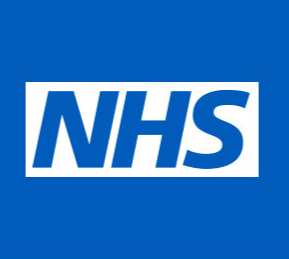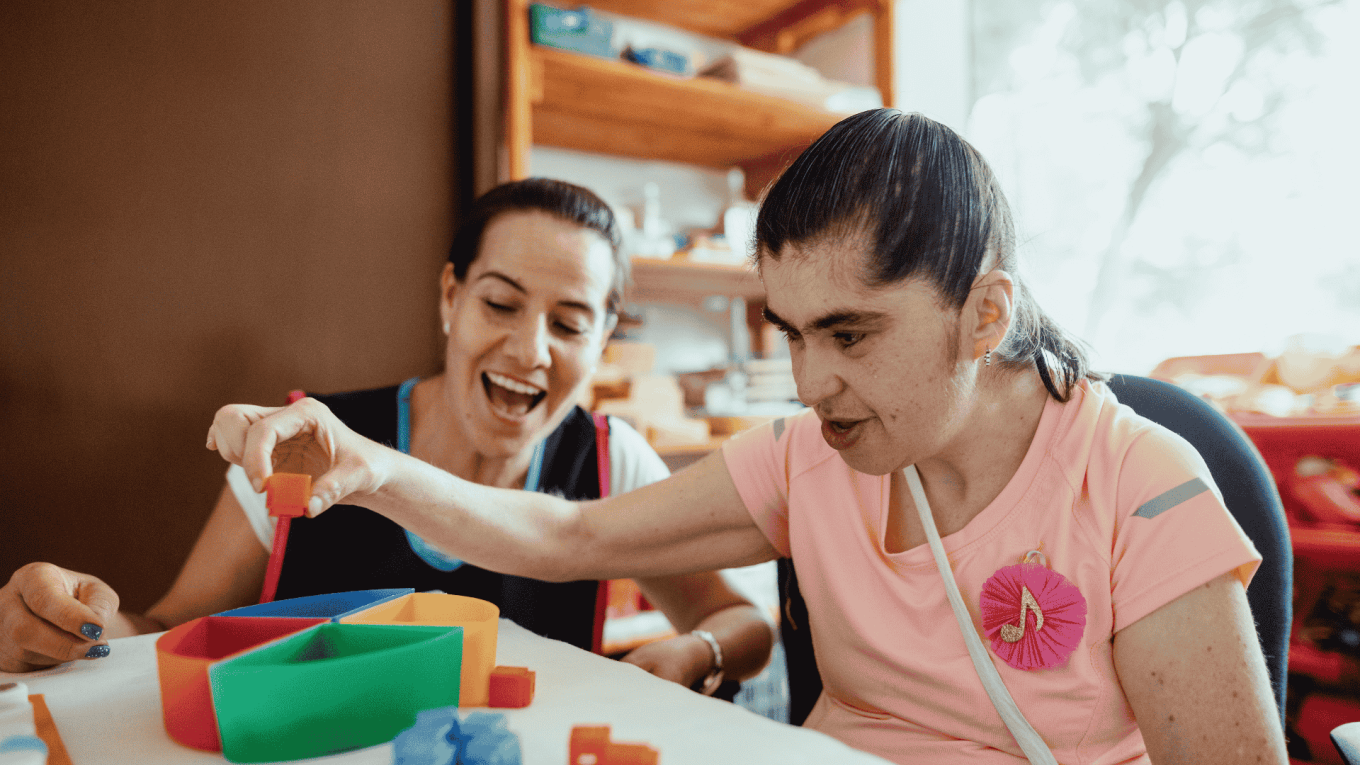
Learning disability nurse
Learning disability nurses support people with a learning disability along with their families and support networks helping them lead full and rewarding lives through specialist healthcare and tailored support.

On this page
Introduction to the role
Learning disability nursing offers the chance to make a lasting difference in people's lives, with the flexibility to work in a range of settings across health, social care and the voluntary sector. Delivering care across the life span, learning disability nurses focus on wellness, providing expertise to enable people to live healthy and purposeful lives, as independently as possible.
The care you provide as a learning disability nurse is shaped around each person’s individual and sometimes complex, needs. You’ll work closely with them, their families and other professionals, often facilitating care across different settings, serving as an advocate and applying your knowledge of rights and reasonable adjustments to ensure people receive the right care and support at the right time.
Find a course with UCAS
Want to explore the next step in traditional degree routes into the NHS? Explore courses related to learning disability nursing with UCAS today.
About the role
What does a learning disability nurse do?
As a learning disability nurse, you’ll focus on optimising people’s health and wellbeing and overall quality of life. You will provide a range of health specific interventions and will work with that person to ensure they are able to access health and care services as and when needed. In doing this, you will remove barriers to independence and help people to lead healthy and independent lives. Your work will be centred around the person you are supporting and their goals.
You may work in a wide range of environments, from a specialist epilepsy service, a child inpatient unit or the health and justice system. Or you could work in a mainstream service providing expertise alongside doctors, psychologists, therapists, teachers and social workers, all working together to support the person’s wellbeing.
Whatever the setting, you’ll use highly personalised communication skills which may include Makaton, assistive technology or pictorial aids to enable people to communicate.
What are the pay and conditions like?
As a learning disability nurse, a full-time job is 37.5 hours a week, however there are opportunities to work part-time. Many healthcare services provide 24/7 care, therefore you may be expected to work across various shifts which include days, nights, weekends and bank holidays. Employers will review flexible working requests and patterns on an individual basis. Most newly qualified nurses start on band 5 of the NHS Agenda for Change pay scale.
You’ll also benefit from access to the NHS Pension Scheme, a wide range of staff discounts, and at least 27 days of annual leave, plus bank holidays.
Where learning disability nursing can take you
Once you have qualified as a learning disability nurse, a range of career paths may become available.
You could:
- specialise in areas such as forensic care, specialised assessment and treatment services, or community learning disability nursing services
- work as a consultant nurse or chief nurse
- transition into management, academia and teaching or clinical research
- Progress into a variety of senior roles across social care and the voluntary and charitable sector.
Discover learning disability nursing
Discover learning disability nursing
Person specification
Is learning disability nursing right for you?
Being a learning disability nurse means working closely with people to help them lead independent, fulfilling lives. You’ll need strong communication and interpersonal skills, the ability to use good judgement, and the confidence to teach, support and guide both individuals and those around them. You’ll often be working in partnership with families, carers and professionals, so the ability to navigate difficult situations , build trust and stay calm under pressure are essential.
Ask yourself:
- Can I communicate clearly with people who have different needs?
- Am I confident supporting and standing up for others and helping them achieve their goals?
Do your values reflect those of the NHS?
Whether you're applying for a university course or a job in the NHS, you’ll need to show how your values match those in the NHS Constitution. These include compassion, respect and a commitment to providing care that is fair, personalised and of high quality.
Ask yourself:
- Do I treat everyone with patience and respect?
- Am I committed to making a positive difference in people’s lives?
Jodie Turner - Why Learning Disability Nurses are important
Why learning disability nurses are important
Entry requirements and training
Studying nursing at university
To become a registered learning disability nurse, most people apply for a degree course. These are usually full time and take around three years to complete. They combine academic study with hands-on training in a range of clinical settings. You will spend around half your time studying at university and half gaining practical supervised experience in a range of healthcare settings.
Entry requirements will vary depending on the university, but you’ll typically need:
- at least five GCSEs at grade 4/C or above, including English language or literature, maths and a science
- two or three A levels or equivalent qualifications, such as a BTEC or T Level
Some universities offer foundation year options if you do not meet the standard entry criteria. If you already hold a degree in another subject, you may be able to apply for an accelerated course lasting around two years.
How to apply
To apply for a full-time learning disability nursing degree, you’ll need to submit your application through UCAS. As part of the process, you may be invited to an interview or selection day. This is your opportunity to show your motivation, understanding of the profession, and how your values reflect those of the NHS Constitution.
Work or volunteer experience in health or care settings can help strengthen your application.
Other routes into nursing
There are also alternative routes to becoming a registered learning disability nurse, including:
Apprenticeships
- Registered nurse degree apprenticeships, which allow you to train and earn a salary at the same time. These are offered by some NHS employers in partnership with universities.
- You could first train to become a nursing associate. This is a registered professional role, regulated by the Nursing and Midwifery Council (NMC). They provide essential care across diverse settings and are individually accountable for their practice. For those who wish to, the role can also serve as a route into registered nursing through further study
- Once you have completed your training and registered as a nursing associate, you can then study at a HEI to qualify as a registered nurses and become a registered learning disability nurse. Some employers support existing staff through training while they continue working.
Find out more about Routes into NHS with UCAS.
All nursing courses in the UK must meet NMC standards of education and training but programmes vary in their content, the way they are structured, and how they are taught and assessed. The facilities available and amount of support and supervision may also differ from course to course. Find out more by looking at university websites and prospectuses, attending university open days and contacting admissions staff.
Work experience
Applying for a course or apprenticeship in learning disability nursing is going to be competitive. If you're seriously considering it, it is a great idea to try and gain some prior work experience to strengthen your application visit NHS England to find out more about gain work experience for NHS Careers.
You will have patient advocacy groups in your area - it is also a good idea to link with them to learn more about people with a learning disability, and also about learning disability nursing.
Financial help at university
You could receive at least £5,000 a year to help fund your studies while at university in England. Your personal circumstances and the course you choose may mean you could receive more.
If you choose to study mental health nursing or learning disability nursing you could receive an additional £1,000. And the good news? You'll never have to pay it back.
Explore NHS Careers
There are over 350 different NHS careers and everyone makes a difference every day. Whether you’re still in education or thinking about changing careers, you'll get the information you need.